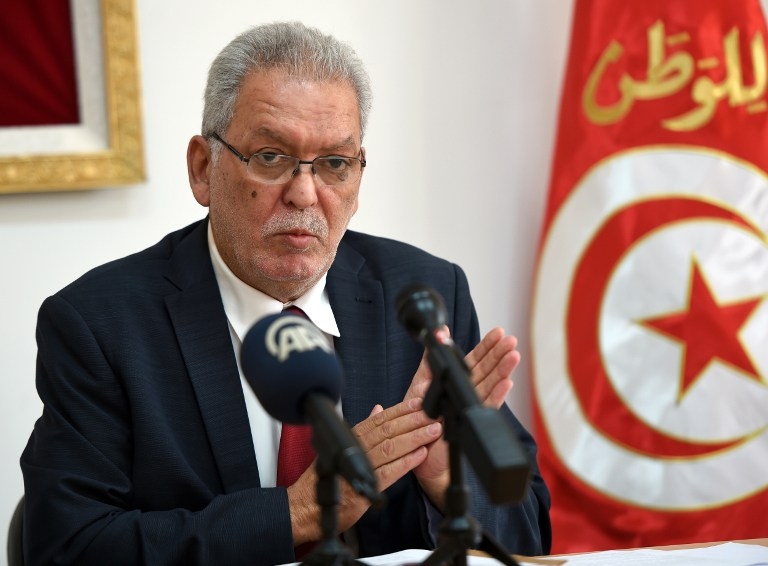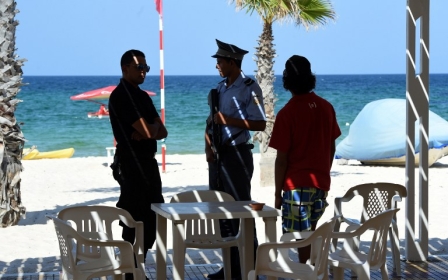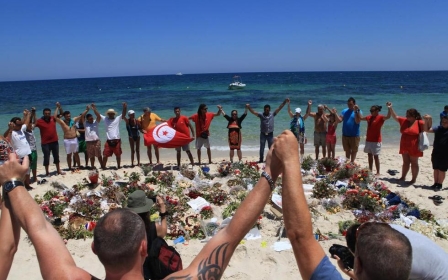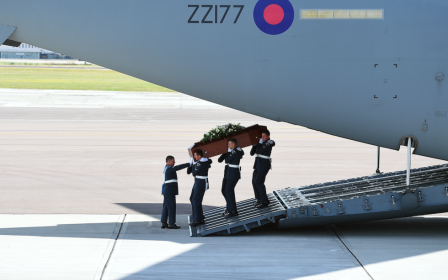Tunisia says 127 arrests since Sousse beach attack

Tunisian authorities have arrested 127 suspected "terrorists" since last month's attack on tourists at a beach resort, the minister heading the crisis group on the incident said Saturday.
"Since the attack, the security forces have carried out more than 700 operations resulting in the arrests of 127 suspected members of terrorist gangs," Kamel Jendoubi said.
The 26 June shooting rampage by a Tunisian student at Port El Kantaoui killed 30 Britons, three Irish nationals, two Germans, one Belgian, one Portuguese and a Russian, and was claimed by the Islamic State group.
Jendoubi did not specify how many of the 127 people detained were being held for suspected involvement in the beach attack.
He had earlier announced the arrest of eight people suspected of having direct links to it.
The minister stressed the government's determination to protect "the country, citizens and nationals of foreign countries".
"Today, more than 100,000 police, national guard and civil protection officers in addition to the army" have been deployed, Jendoubi said.
Around 3,000 security guards were protecting beaches, hotels and archaeological sites in the country, he said.
Jendoubi also reiterated the government's "regret" at Britain's decision to repatriate citizens from the North African country, saying "there is no new evidence suggesting the imminence" of an attack.
On Thursday, Britain urged its nationals to cut short their holidays in Tunisiaa fter London warned the country was still unsafe after the massacre. Denmark followed suit on Friday.
Jendoubi said Prime Minister Habib Essid had spoken to his British counterpart David Cameron on Friday, but did not elaborate.
The Port El Kantaoui attack was the second to target foreign tourists in just over three months. On 18 March, 21 tourists and a policeman were killed in a gun attack on the National Bardo Museum in Tunis.
Both that attack and last month's rampage were claimed by the Islamic State group.
Middle East Eye propose une couverture et une analyse indépendantes et incomparables du Moyen-Orient, de l’Afrique du Nord et d’autres régions du monde. Pour en savoir plus sur la reprise de ce contenu et les frais qui s’appliquent, veuillez remplir ce formulaire [en anglais]. Pour en savoir plus sur MEE, cliquez ici [en anglais].




